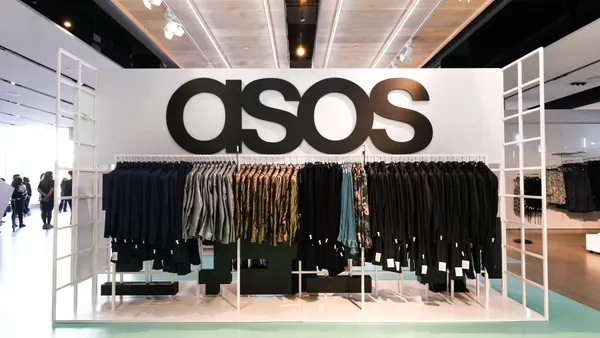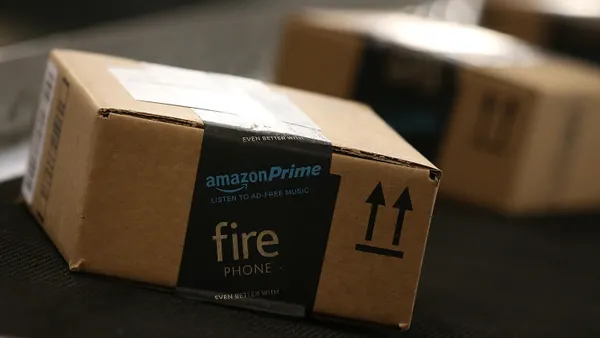Dive Brief:
- Tranche four tariffs will likely affect much of Macy's apparel and shoes, said Macy's CEO Jeff Gennette on the retailer's first-quarter earnings call Wednesday. Gennette called the proposed tariffs on $300 billion worth of imports "the big one."
- "Looking at all those categories and those brands that are included, it is hard to do the math to find a path that gets you to a place where you don't have a customer impact," said Gennette.
- Tranche three, on which the tariff rate increased from 10% to 25% Friday, did not affect Macy's in a major way, but the retailer's furniture imports are affected by the bump. "The team anticipates that this can be mitigated," Gennette said.
Dive Insight:
The earnings rush is largely over with just a few major players left to disclose their results. Macy's, along with Walmart, is in the unlucky position to try to offer investors and analysts a sense of how recent tariffs moves by the Trump administration will change its 2019 expectations, just days after the changes were announced.
With the release of list four just a few days prior, the retailer reactions are starting to trickle in now. And though strategies to deal with tranche four are just forming, mitigation is looking less likely for this round.
"Retailers have done everything they can up to now, but when we get to 25 percent on this final fourth tranche, if we go there … It’s going to be difficult for any retailer in the country to avoid passing along price increases to consumers," said National Retail Federation President Matthew Shay on CNBC Tuesday. "There’s just not enough leverage and wiggle room left to make that happen," he added.
Roughly 20% of Macy's affected products are private label brands, so the retailer has much more control over critical decisions. The company has been working for years to move production of these goods out of China, but Gennette added China remains "still an important piece of our overall mix." Macy's has been consolidating business in an effort to gain negotiating power by working with fewer manufacturers — precisely the type of "wiggle room" Shay fears may have run out for many retailers.
Negotiations with outside brands to mitigate cost increases from tariffs have already begun, said Gennette.
Analysts probed the CEO as to whether the tariff threat will affect overall inventory levels. Macy's, like most major retailers, has been working to fine tune its inventory levels to gain optimum efficiency. The company has been changing operational strategies to drastically reduce gross inventory to the tune of $100 million per year.
With the comment period for tranche four tariffs ending in June, just as peak season decisions are coming due, tariffs could threaten the work Macy's and other retailers have done to reduce overall inventory. In the first quarter, Macy's inventory was up 3.9%, which executives attributed to slower than expected sales on spring products. Gennette hinted there is already product on the water that might otherwise not be, due to tariffs.
"We do have more in-transit inventory than we had last year that anticipates trying to get earlier receipts and for key periods underneath some of the tariff conversations," he said.













